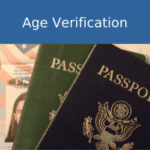Description
Complaints Handling Online Training
This complaints handling online training course will look at how to respond to complaints, the complaints handling process and how to identify incidents and errors.
- Developed by professionals
- Accredited by The CPD Accreditation Group
- 100% online, learn at your own time and pace
- Translates into over 100 different languages
- Instant certificate downloaded
Who is it Complaints Handling Course for?
The complaint handling course is suitable for:
- Healthcare professionals and staff
- Caregivers and support workers
- Individuals interested in healthcare quality and safety
When will I get my certificate?
Once you have successfully passed our course you will be able to download and print your certificate immediately.
As this course has been accredited by the CPD Group your certificate will contain the CPD logo and unique reference number.
Key Points: Complaints Handling
- Demonstrate how to respond to comments and complaints in line with legislation and agreed ways of working;
- Describe who to ask for advice and support in handling comments and complaints;
- Explain the importance of learning from comments and complaints to improve the quality of service;
- Describe how to recognise adverse events, incidents, errors and near misses;
- Explain what you must and must not do in relation to adverse events, incidents, errors and near misses; and
- Identify the legislation and agreed ways of working in relation to reporting any adverse events, incidents, errors and near misses.
Course Structure: Complaints Handling Online Training
-
Responding to Comments and Complaints
- Demonstrate the appropriate response to comments and complaints.
- Learn how to handle feedback in accordance with legal requirements and agreed procedures.
- Understand the significance of addressing concerns raised by individuals.
-
Seeking Advice and Support
- Identify the key individuals or entities to approach for guidance and assistance in managing comments and complaints.
- Explore the support networks available in responding effectively to feedback.
- Ensure that you know where to seek help when needed.
-
Learning from Feedback
- Grasp the importance of using comments and complaints as valuable insights for improving service quality.
- Understand how to apply feedback constructively to enhance the care provided.
- Promote a culture of continuous improvement.
-
Recognising Adverse Events and Incidents
- Learn to identify adverse events, incidents, errors, and near misses in healthcare settings.
- Understand the differences between these events and their potential impact.
- Gain the ability to spot warning signs and respond proactively.
-
Actions in Adverse Events
- Explain what you should and should not do when adverse events, incidents, errors, or near misses occur.
- Discover the best practices for handling these situations to minimize harm and improve safety.
- Ensure that your actions align with legal and ethical guidelines.
-
Legislation and Reporting
- Identify the relevant legislation and agreed practices concerning reporting adverse events, incidents, errors, and near misses.
- Learn how to report these events accurately and in compliance with legal requirements.
- Ensure that all reporting is aligned with established protocols.
Course Benefits: Complaints Handling Online Training
- Develop the skills to respond to comments, complaints, and adverse events effectively.
- Know who to seek advice and support from in various situations.
- Use feedback to enhance the quality of services and foster continuous improvement.
- Recognise and respond to adverse events, incidents, errors, and near misses.
- Understand the legal and ethical aspects of reporting such events accurately.
Top 5 FAQs:
- Who is this course designed for?
- This course is suitable for healthcare professionals, caregivers, and anyone interested in improving healthcare quality.
- Is prior healthcare experience required to enroll?
- No, this course is open to learners of all levels, with no prior healthcare knowledge necessary.
- What can I gain from this training?
- You’ll gain essential skills in responding to comments, complaints, and adverse events, contributing to safer and better-quality healthcare.
- How long does it take to complete the course?
- You can complete the course at your own pace, but most learners finish in about 3-4 hours.
- Will I receive a certificate upon completion?
- Yes, you’ll receive a certificate to demonstrate your knowledge in handling comments, complaints, and adverse events in line with legislation and agreed procedures.





